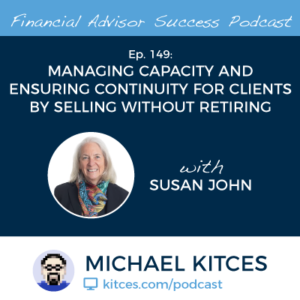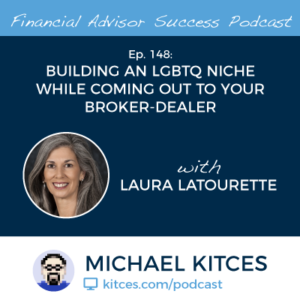Over the past several years, the big focus in the financial advice industry has been around the various iterations of a fiduciary standard. From the DoL fiduciary rule, to the SEC’s Regulation Best Interest, to efforts by individual states to pass legislation, there has been plenty of debate over the best (and most practical) way to ensure that all financial advisors do what’s in the best interest of their clients. However, lost in all the sturm und drang over these regulatory and legislative undertakings is the question: Do we even really need a fiduciary rule in the first place?
After all, compliance with existing regulations is expensive and time consuming enough as it is, and a higher fiduciary standard may only amplify that. And even if you try to legislate morality within the professions, won’t there be those who figure out a way to break the rules, anyway? Not to mention that acting in a client’s best interest is arguably just “good business” anyway?
In our 20th episode of Kitces & Carl, Michael Kitces and financial advisor communication expert Carl Richards discuss why a fiduciary rule is necessary even though acting in your client’s best interests is already “good business” in the long run, how real financial advisors are at a competitive disadvantage against those who really are just out to make the next buck as quickly as possible, and how advisors have a duty to spread the word about what it means to be a fiduciary.
As a starting point, it’s important to recognize that serving clients well isn’t just about being able to look at yourself in the mirror… it is also, in a very real sense, in your own best interest as a business owner… at least if you want your clients (and the friends and family that they might refer to you) to keep paying for your services for several decades to come. In other words, an advisor can either build a sustainable business based on trust, or a business that’s dependent on finding the next person to fool in the short term with a quick sale before moving on to the next.
However, the reality is that all real financial advisors have had the experience of meeting with a prospective client who has been on the receiving end of an unscrupulous “advisor” who has already extracted as much as they legally could from that client and moved on. And the unfortunate fact is that it’s often more profitable (and maybe even easier) to scare someone into buying a high-commission “can’t-lose” product than it is to convince them to pay an ongoing fee for an admittedly intangible service.
And that’s really the crux of why a blanket fiduciary rule is necessary. Even in today’s environment where consumers are better educated and it’s much easier for someone to ‘do their due diligence’, the bar is still so low that, not only can anyone call themselves an “advisor”, but they can still extract nearly 10% of the wealth of every person they meet by selling a low-quality high-cost product, with little worry about any legal recourse… since the bar to prove their sale was “unsuitable” is so low and easily cleared.
Ultimately, the key point is to understand that, while real financial advisors remain at a competitive disadvantage to salespeople who can legally take a large chunk of someone’s net worth by selling them flawed and expensive products as quickly as possible and moving on to the next, there is at least an ongoing effort by regulatory bodies and state legislative bodies to make it more difficult for that sort of maleficence to occur in the first place. But it’s not just up to the regulators to change the industry (and the public’s perception of it). Responsibility for affecting change also falls on the shoulders of real financial advisors, who (as part of their sacred duty to help the clients manage, grow, and protect their life’s savings) have to help foster awareness both within and outside of the industry around what it means to truly be an advisor.

 Welcome back to the 149th episode of Financial Advisor Success Podcast!
Welcome back to the 149th episode of Financial Advisor Success Podcast! Welcome back to the 148th episode of Financial Advisor Success Podcast!
Welcome back to the 148th episode of Financial Advisor Success Podcast!
